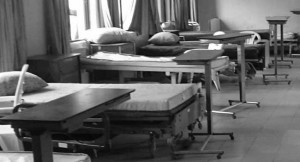‘Our mandate is to make PHCs more efficient’

Dr. Faisal Shuaib is the newly appointed Executive Secretary of the National Primary Health Care Development Agency (NPHCDA). In this interview with Vincent Ikuomola and Olugbenga Adanikin, he identified challenges confronting access to primary health care delivery in the country and concerted efforts being made to provide sustainable solutions to the sector. Excerpts:
We know how paramount the health care centres are to your mandate. Considering their current status, will you say you are satisfied?
Have you met anyone who is satisfied with the state of primary healthcare centres (PHC) in Nigeria? Obviously not, right? Clearly there has been some progress in the last few decades in terms of where we are coming from but we are far short from where we need to be in terms of delivering quality primary health care services. If you go to a lot of PHC centres, it’s either they don’t have right infrastructure, human resources, drugs, commodities, power, water and ambulances that will ensure there is prompt referral of cases. This is the reality in a lot of health facilities in a lot of PHCs in the country.
That is why immediately Mr. President came onboard he made it very clear that his priority is to see how he can close the gap between the rich and the poor. Those who live in the urban areas and rural areas when it comes to accessing quality health care. So no matter where you live in Nigeria, the vision of Mr. President is for you to be able to access the best of PHC services, largely because PHC is the foundation of any healthcare delivery system. If the foundation is weak, of course, the whole infrastructure will collapse. That is why people say the whole healthcare delivery system is near collapse in Nigeria because people are not managed quickly when they fall sick. Sometimes, the illness get complicated that they will need secondary or tertiary care and some times, need to go abroad because the kind of tertiary care may not be sufficient to ensure they recover from the ailments.
So yes, there is some progress but when you look across the different indices, most if not all, are sub optimal indices such as maternal mortality, infant mortality rates point to the fact that we don’t have an effective and efficient PHC system. If we do, then you see direct correlation with these indices. I can sit here and say we have a perfect system but if you look at these indices, they tell us the story.
What we are trying to do in NPHCDA and the Federal Ministry of Health (FMoH) is unprecedented. Once Mr. President provided the vision, the Minister of Health, Prof. Isaac Adewole took up a strategy of saying if we want to improve PHC in Nigeria, then access is a huge issue so is quality. Why can’t we start by saying in each of the 9556 wards that we have in Nigeria, almost 10, 000 wards, why don’t we have functional PHC centres so that no matter where you live within a ward, it is possible for you to trek short distance and you will have access to a functional PHC. The Minister is clear on that and as an implementing agency the NPHCDA has taken it upon itself to ensure its realisation. But what the minister did first was to start with one health facility per senatorial district to be renovated. That comes to about 109 plus 1 where we have cases of Lassa fever few years ago. So that makes it 110. We are focusing on renovating, equipping, putting the right human resources, drugs and equipment in these 110 health facilities.
In 2018 budget, we also made provision for the repair of 774 PHC facilities. We are hoping that with the appropriation of basic healthcare provision fund, there will be more funds available to infuse into the PHC system to see rapid improvement in PHC delivery in Nigeria. We are really optimistic. Yes, we were at a point where there is a lot of neglect in the last few years but better days are ahead when it comes to delivery of PHC in Nigeria.
Read more at http://thenationonlineng.net/mandate-make-phcs-efficient/












